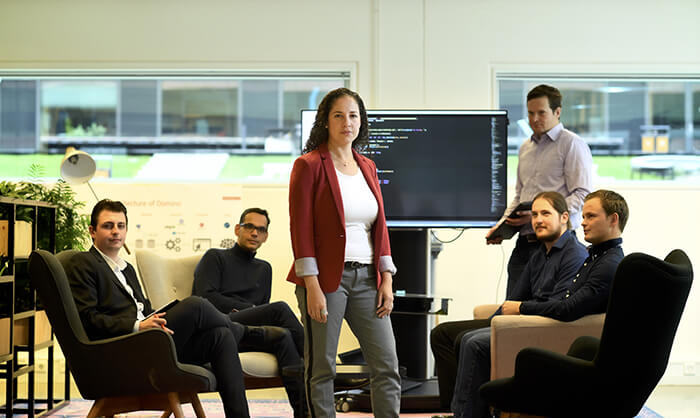
For Dutch multinational banking and financial services corporation ING, 2016 was the year of blockchain experimentation during which it developed 27 proofs-of-concepts of the application of the technology in six business areas including payments, trade finance and working capital solutions, financial markets, bank treasury, lending, and compliance and identity.
In a blog post published last week, ING gave an update on its testing of blockchain technology. Mariana Gomes de la Villa, senior program manager for ING’s Amsterdam-based Blockchain Innovation team, said:
“For us, 2016 was about experimentation and getting to know the technology: how it works, how we can use it and what the pitfalls and limitations are. This technology wasn’t built for the financial industry so there are constraints and it doesn’t always cover our requirements.”
During this test phase, ING has developed, for instance, a solution that applied blockchain to the Know-Your-Customer (KYC) process. Working with ten other banks, the solution demonstrated that blockchain could simplify KYC, while increasing transparency, security and cost-efficiencies for banks. Customers would only have to submit identity documents once rather than each time they open a new account, for example, in another country.
In trade finance, another trial showed that blockchain technology could reduce operational and compliance costs by 10 to 15% and increase bank revenues by as much as 15%.
Ivar Wiersma, head of innovation at Wholesale Banking and responsible for Gomes de la Villa’s blockchain team, views blockchain has a “foundational technology” that will likely change the world.
Wiersma said:
“Blockchain started eight years ago with bitcoin. Now we need new developments like smart contracts and digital identity so blockchain can become the technology standard for the next generation.” Blockchain has the potential to profoundly change the financial services structures.”
Setting the tone for 2017
Wiersma said he wanted to see more this year. More specifically, he wants the development team to focus on five to six of these use cases.
“We will introduce more of these pilots and tests that make clients enthusiastic. Not every pilot will be a home run, but that’s OK. I see them as stepping stones, showing us what’s possible,” Wiersma said.
Nevertheless, he noted that collaboration was essential at this stage of development. “It’s a network, so working on your own is useless. It’s like being the only one with a mobile phone,” Wiersma said.
According to Gomes de la Villa:
“Each solution should comply with many more areas: performance and scalability, the regulatory and legal framework, privacy and confidentiality. That’s also why collaboration with the business and external partners is so important.”
In 2016, ING collaborated with partners inside and outside the bank, including consortia such as R3, fintech startups, the Dutch central bank, the Dutch Payments Association and the European Banking Forum, to raise awareness of blockchain and develop proofs-of-concept.
The team has hosted numerous blockchain workshops with colleagues, business partners and other stakeholders, but also EU commissioners and the European parliament, to educate on relevant topics and promote the use of blockchain.
During the World Economic Forum annual meeting in Davos, Switzerland, in January, it was unveiled that ING Bootcamp winner Easy TradING Connect, trading house Mercuria and Societe Generale, have been working on the first large oil trade using blockchain technology. This would be a breakthrough in digitalizing the tradition-bound oil industry.
ING is one of the key sponsors of the Dutch Blockchain Hackathon, a three-day hackathon taking place later this month. The event aims to develop, connect, enforce and accelerate knowledge, solutions and the blockchain ecosystem itself by creating cooperation and opportunities with and for startups, students, small and medium-sized IT companies and corporates, knowledge institutions and public organizations.

